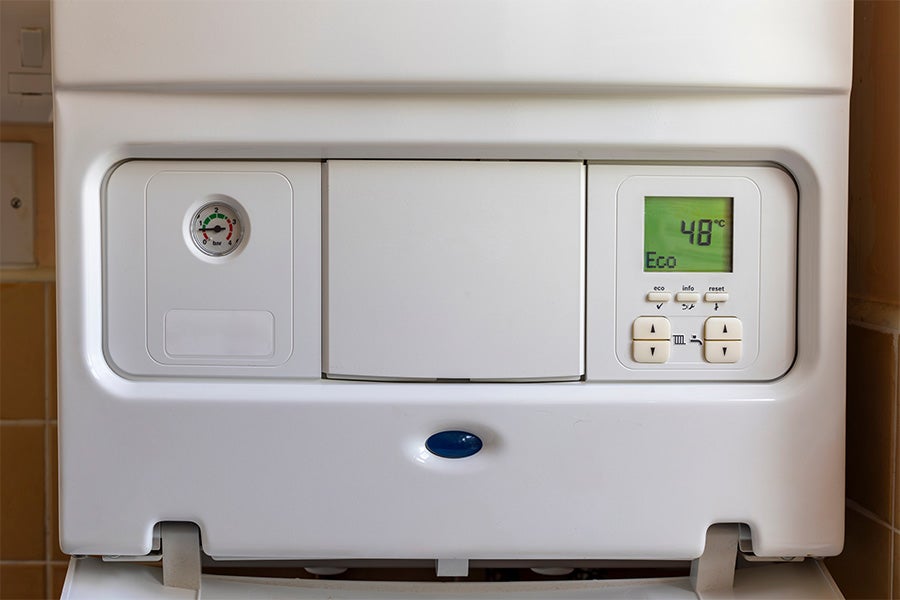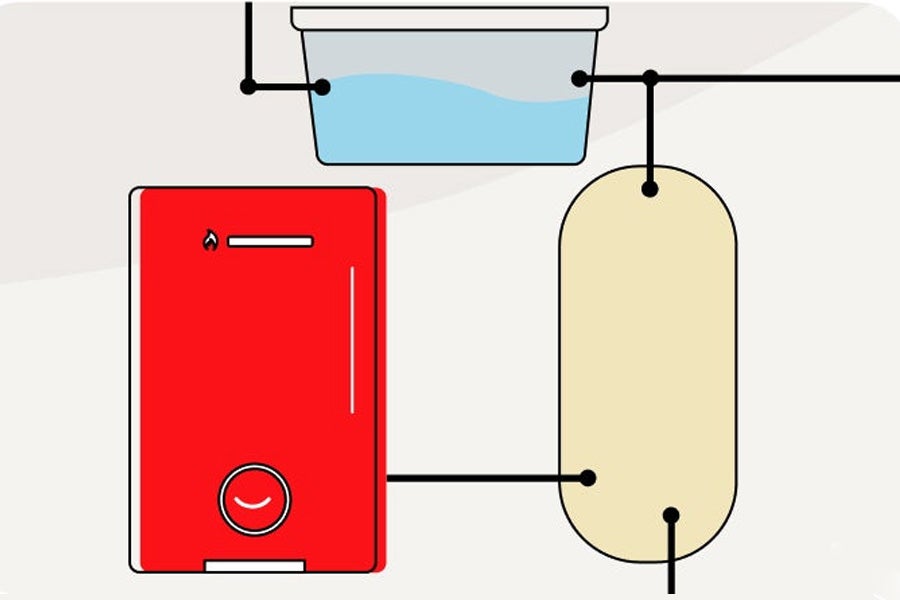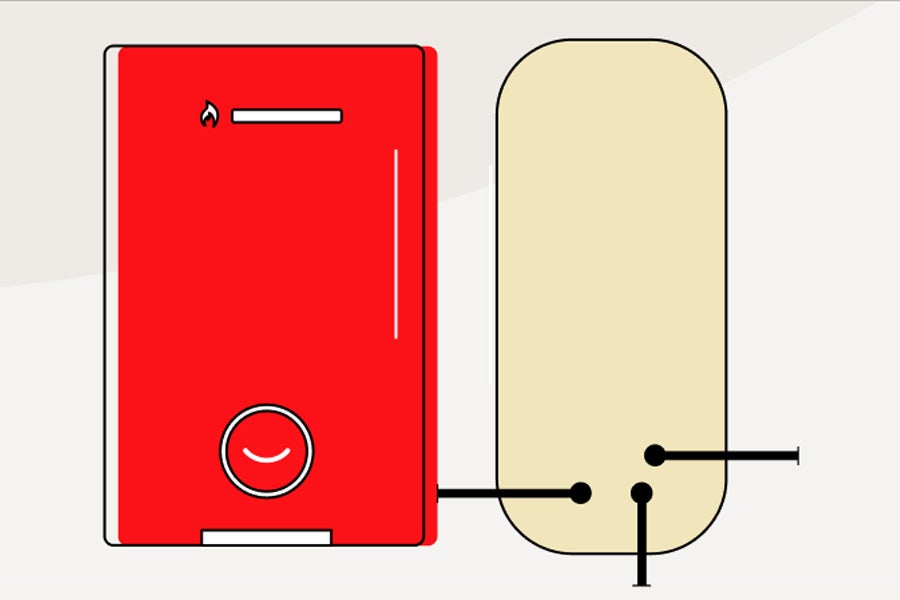New boiler guides
Different types of boilers explained
16 Jun 2025 • 6 minutes


Choosing the right boiler for your home can feel like a daunting task, but it doesn’t have to be. With a little know-how, you can find the perfect fit to keep your household warm and your water piping hot.
In this article, we’ll walk you through the main types of boilers—combi, conventional, and system boilers—explaining how they work, their pros and cons, and who they’re best suited for. Whether you're installing a new system, upgrading your setup, or replacing your boiler, we've got all the information you need to make the right choice.
The three main types of boilers found in UK homes are:
Each type comes with its own features and benefits depending on your home’s heating and hot water needs. There are others, less common types of boilers—like back boilers, which are older systems usually installed behind fireplaces. These are rarely used in modern homes and are generally being phased out in favour of more efficient systems.

Also known as combination boilers, combi boilers are one of the most popular choices as new boilers in modern homes. They combine a water heater and central heating boiler into one compact unit, which means you don’t need a separate hot water cylinder or cold water tank.
Combi boilers heat water directly from the mains when you turn on a tap. There’s no need for a storage tank—hot water is delivered on demand, so you get instant hot water without waiting for a cylinder to fill up.

Conventional boilers—also known as heat-only or regular boilers – often require both a hot water cylinder and a cold water storage tank, usually placed in the loft. Conventional boilers can also be connected to an unvented cylinder, which allows use of water straight from the mains, so a cold water tank isn’t always needed.
Conventional boilers use a cold water tank to store and send water to the cylinder where the boiler heats the water and sends it to the radiators and taps as needed.

System boilers feature elements of both combi and conventional systems. They take water directly from the mains, like combi boilers, but also store hot water in a cylinder, similar to conventional boilers.
A system boiler normally operates alongside either an open vented hot water cylinder or an unvented hot water cylinder to deliver hot water throughout your home.
System boilers take water directly from the mains and heat the water that’s stored in a hot water storage cylinder. This is then used for central heating, as well as showers, sinks, and other hot water needs.
Still unsure which type of boiler is best for your home? Let’s recap:
When choosing the right boiler for your home, you’ll need to consider the size of your home, as this will directly affect the size of the boiler that you need. You’ll also need to take into account how many people live there and how often you use hot water.
No matter which type of boiler you choose, keeping it running smoothly is key to a warm, comfortable home—and that’s where we come in.
At HomeServe, our Gas Safe registered engineers are here to help with everything from regular servicing to emergency repairs. Book your Gas Boiler Service today and let us handle the hard work, so you can enjoy peace of mind all year round.
Our help & advice articles cover Plumbing, Home heating, Electrical, Energy-saving and Home maintenance.